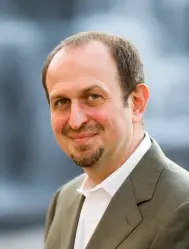

6:00 pm EDT - 8:00 pm EDT
Past Event
Content from the Brookings Doha Center is now archived. In September 2021, after 14 years of impactful partnership, Brookings and the Brookings Doha Center announced that they were ending their affiliation. The Brookings Doha Center is now the Middle East Council on Global Affairs, a separate public policy institution based in Qatar.
On March 31, 2009, the Brookings Doha Center hosted Saeb Erakat, Head of the Palestine Liberation Organization Negotiations Affairs Department, for a policy discussion entitled “The New Israeli Government, Palestinian Reconciliation, and Prospects for Peace after the Gaza War.” Erakat opened the session by responding directly to the inauguration speech given a few hours earlier by Israeli Prime Minister, Benjamin Netanyahu. He expressed disappointment in Netanyahu’s failure to highlight the two-state solution in his speech and said that the Israeli leader’s call for Palestinians to rule themselves is not a possibility when they must live in a continued state of occupation.
Erakat reiterated several times during his talk the necessity of the two-state solution along the 1967 armistice lines with East Jerusalem as the capital of an independent Palestinian state. He emphasized that other options – including a one-state solution or living in a system resembling “apartheid” – were not acceptable and that peace would only come if an agreement is reached based on interests, rather than fear and suspicion. “I am not in a souq trying to apply international law, I just want to achieve a fair agreement,” he said. Erakat was also adamant that neither this conflict nor any other problem in the region can be solved by military force; instead, security and stability will only be delivered to the Middle East by finding a permanent solution to the Israel-Palestine conflict and promoting democracy in the Arab world.
Erakat touched on the far-reaching effects of the Israeli-Palestinian conflict, stressing that it continues to influence the broader region, which adds to the urgency of finding a solution. He also remarked that these effects reach beyond the Middle East and that the United States no longer only “shares its borders” with Canada, Mexico and two oceans, but also by virtue of the U.S. deployments in Afghanistan and Iraq with Iran, Turkey, Syria, and the Gulf and as such, Americans cannot afford to delay a permanent peace to this conflict. On this note, he also stated that for the good of the whole region – especially Palestinians – dialogue between the U.S. and Iran must succeed. “As a Palestinian, I’m the first casualty of any war,” he remarked.
On the topic of the new Israeli government, Erakat said that he cannot stand guard on the actions of Israel, but can only hope those in power recognize that the interests of all are better served if they are committed to making a lasting peace. He also commented on the issue of Palestinian reconciliation, stressing the importance of establishing a unity government that is responsible and will work to solve the problems of all Palestinians, not just those in a particular party. He specifically cited the efforts of the Egyptian-mediated talks between Fatah and Hamas and said that while he respects the fact that Hamas is a political party that has the right to its own views, there is a difference between the government of an entire country and one specific political party. Erakat said that he hopes that a unity government will emerge so that Palestinians can accomplish a long list of tasks, including reconstructing Gaza and holding presidential elections; he stated several times that Palestine needs, “ballots, not bullets.” Reflecting upon the recent Gaza war, Erakat said that it was not waged against Hamas, but against the Palestinian people in order to try and systematically separate Gaza and the West Bank, thus dividing Palestinians.
In the question and answer session that followed, Erakat fielded questions on a wide range of topics, including the actions of the Obama administration, his vision of a future Palestinian state, and even past mistakes of the Fatah government. He mentioned that he believed George Mitchell to be a man of stature and a skilled diplomat, but since he answers to the administration, any of his actions will depend on the decisions of the executive branch; he hopes that President Obama will distinguish between previous rhetoric of “what is possible” and focus instead on “what is needed.” Erakat acknowledged that Israel will always be “a part of America’s political life,” but hopes that the necessary change can still come. In response to a question about the divisions within the Arab world as a response to the war in Gaza, Erakat reminded the audience that Arab countries have been divided over many issues for a long time, not just this most recent conflict.
Finally, he reiterated his vision for Palestine is a state that must include Gaza, the West Bank, and East Jerusalem where citizens are entitled to democracy, security, human rights, prospects for international development, and a government that provides transparency and accountability.


Noha Aboueldahab
August 23, 2021

August 23, 2021

Yasmina Abouzzohour
August 19, 2021